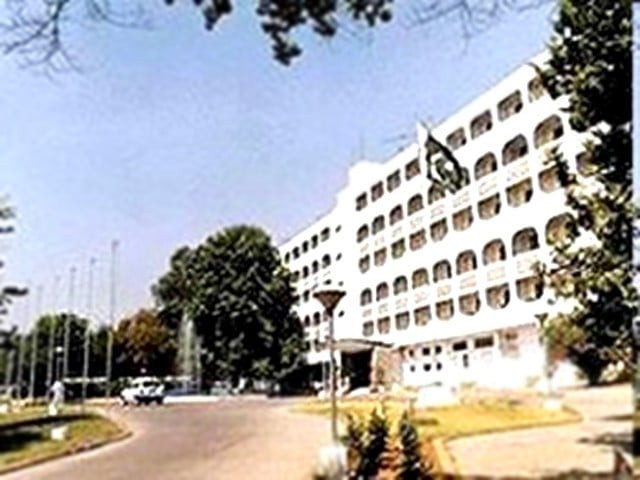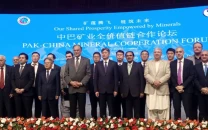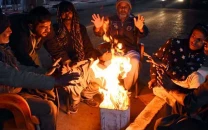Pakistan condemns temple construction at Babri Masjid site
FO says a temple on the site of a historic mosque will remain a blot on the face of Indian democracy

Pakistan on Wednesday strongly condemned the construction of ‘Ram Mandir’ at the site where historic Babri Masjid stood for around five centuries, saying that a temple built on the site of a historic mosque would always remain a blot on the face of the so-called Indian democracy.
The Foreign Office said in a statement that the flawed judgment of the Indian Supreme Court that paved the way for the construction of the temple not only reflected the preponderance of faith over justice but also the growing majoritarianism in today’s India.
In India, the statement said minorities, particularly Muslims and their places of worship, were increasingly under attack. It added: “A temple built on the site of a historic mosque will remain a blot on the face of the so-called Indian democracy for the times to come.”
The statement said that the painful scenes of the demolition of Babri Masjid by BJP and its extremist Hindu affiliates in 1992 remained fresh in the minds of Muslims across the globe and since then, the OIC had passed numerous resolutions, condemning the heinous act of demolishing the centuries-old mosque.
“Future generations of Muslims will continue to be cognizant of the new illegitimate structure which the Hindutva-driven BJP has campaigned for, and is bent upon constructing as part of its agenda of converting India into a ‘Hindu Rashtra’,” the statement said, adding that Wednesday’s launch of construction of temple at the site in Ayodhya “reflected an unrelenting drive in this direction”.
“The extreme haste in starting the construction of a temple at the Babri Masjid site amidst the ravaging Covid-19 pandemic, anti-Muslim Citizenship Amendment Act (CAA), the looming National Register of Citizens (NRC) to disenfranchise Muslims, the targeted killings of Muslims in Delhi with state complicity early this year, and other anti-Muslim measures point to the fact how Muslims in India are being demonised, dispossessed, marginalised and subjected to targeted violence,” it said.
“India’s gross and systematic human rights violations in the Indian Illegally Occupied Jammu & Kashmir (IIOJK), and BJP’s sinister design to change the demography of the occupied territory, all reflect the rising tide of the divisive and extremist ideology in India which poses threat to religious harmony in India and to regional peace,” it added.
“The RSS-BJP combine is responsible for continued targeting and destruction of places of worship of Muslims in India in an organised manner, whether it was during the Gujarat pogrom in 2002 or Delhi pogrom in 2020. The attacks by Hindu extremists on mosques have continued even during the on-going pandemic. Not only Muslims have been blamed for spreading the Covid-19 but their religious freedom has also come under attack by the BJP-RSS zealots, who treat minorities as second-class citizens.”
Pakistan urged the Indian government to ensure safety, security and protection of minorities, particularly Muslims and their places of worship and other Islamic sites on which the Hindu extremists and zealots had laid claims.
“The international community, the United Nations and relevant international organisations should play their part in saving the Islamic heritage sites in India from the ‘Hindutva’ regime and ensure protection and religious rights of minorities in India,” the statement said.
The statement came as Indian Prime Minister Narendra Modi launched the construction of a new Hindu temple at the site in the city of Ayodhya in northern India. In 1992, a Hindu mob destroyed a centuries-old mosque there. Religious riots that followed the incident killed 2,000 people, mostly Muslims.
The colourful ceremony in Ayodhya, with Modi surrounded by saffron-clad priests, came on the first anniversary of the removal of the special status enjoyed by divided Kashmir, India's only Muslim-majority region.
For his Hindu nationalist supporters, both steps confirm Modi as a decisive, visionary and heroic leader -- and India's most important in decades.
His critics see him as remoulding the officially secular country of 1.3 billion as a Hindu nation at the expense of India's 200 million Muslims, and taking it in an authoritarian direction.
"Modi has certainly been India's most transformative leader in recent memory," Michael Kugelman, from the Wilson Center, told AFP, making him "wildly popular, but also highly controversial and quite divisive".
The holy city of Ayodhya in northern India has long been a religious tinderbox, providing the spark for some of its worst sectarian violence.
In 1992, a Hindu mob destroyed a centuries-old mosque there that they believed had been built on the birthplace of Ram, an important deity.
This triggered religious riots that killed 2,000 people, most of them Muslims.
A lengthy legal battle ensued, but in November India's top court awarded the site to Hindus, allowing a temple "touching the sky" to be built on top of the ruined mosque.
Wednesday's elaborate religious ceremony, involving priests in saffron masks, bricks made of silver and 135 living saints, was broadcast live on television.
Images that appeared to show how the temple would look like when completed were displayed in New York's Times Square.
Small celebrations took place across India including in Pune where people danced around a Ram statue and in Amritsar where Bharatiya Janata Party (BJP) youth members burned crackers.
With additional input from Agencies



















COMMENTS
Comments are moderated and generally will be posted if they are on-topic and not abusive.
For more information, please see our Comments FAQ